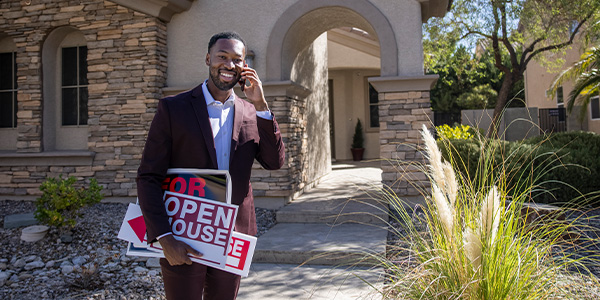Homebuyers
Condo Conundrum: Your Guide on How to Purchase a Condo with an FHA Loan
March 6, 2025
As single-family homes continue to command high prices, many buyers are turning to more affordably priced condos. However, securing an FHA loan for their purchase may be tougher than they may think.
Many buyers, particularly first-time homebuyers, turn to Federal Housing Administration (FHA) loans to lock in lower mortgage interest rates and down payments that can be as little as 3.5% of the purchase price of the home.
Unfortunately, getting these government-backed loans for a condominium can be tricky. FHA loans are only available for a limited number of condos. And getting new condos approved for FHA loans often requires a bit of legwork. (You can look for existing FHA-approved condos here.)
However, it is getting easier to snag one of these mortgages for a condo. Until 2018, individual condos couldn’t qualify for an FHA loan on their own. Instead, the entire condo building or community had to apply for FHA approval.
In 2019, lenders were allowed to approve individual condo units for FHA loans—provided they meet certain requirements and restrictions.
This is what homebuyers need to know about getting an FHA loan for a condo.
How to get an FHA loan for a condo

Not every condo is eligible for an FHA loan. Condos must meet certain requirements and restrictions first.
These units must be ready for you to move in—not still under construction. Plus, the condo building or complex must have at least five units. And no more than half of the other units can have FHA loans on them. This percentage is even lower for buildings with between five and ten units.
In addition, the condo complex must be at least 50% occupied. So, no more than half of the units can be vacant when you’re applying for the mortgage. And at least 85% of the other owners in the complex can’t be behind on their condo dues.
The condo you hope to purchase will need to undergo its own FHA appraisal as well. This ensures you’re not overpaying for the property by looking at how much similar properties have sold for recently. It also includes a health and safety inspection.
FHA appraisers will look for hazardous materials and toxic substances, peeling lead paint, mold, and radon gas on the property. The property must also have working plumbing, electrical, and HVAC systems, appliances, a good foundation, roof, and structure, among other things.
Finally, FHA approval isn’t permanent. Units and buildings will need to be recertified every three years to ensure they’re still meeting all the requirements.
While these requirements may feel like a lot, these rules are in place to reduce the risk the FHA is taking by insuring your mortgage. The agency wants to ensure that your unit and complex maintains (and hopefully increases) its value instead of its worth falling due to neglect, hazards, or structural or systems problems.
The advantages to getting an FHA loan for a condo

There are many reasons why buyers may hope to secure an FHA loan on their condo.
Borrowers with FHA loans often have lower mortgage rates than homeowners with other types of loans. These interest rates can be anywhere from a quarter to more than half of a percentage point lower than Conventional and other kinds of mortgages. That can add up to big savings over time.
Plus, FHA loans offer lower down payments. Buyers with at least a 580 credit score may qualify to put down just 3.5% of the purchase price of the home. Those with lower scores generally must put down 10%.
“The main advantages of FHA loans for condos are the low down payment,” said New American Funding loan officer Dan Harrington. He is based in Porter Ranch, Calif.
The disadvantages to getting an FHA loan for a condo
While FHA loans may make it easier for buyers to become condo owners, the loans do have some drawbacks.
The biggest one is that it’s hard to find condos that are already FHA-approved. Going through the condo approval process takes time and the approval of multiple other parties as well. This can make an already-involved homebuying process even more stressful.
Plus, as with any other type of FHA loan, you’ll need to pay upfront and annual monthly mortgage insurance premiums (MIPs). The upfront fee is often added to your loan, while the annual fees are generally paid monthly by the borrower.
Similar to private mortgage insurance (PMI), this is for borrowers who don’t make a down payment of at least 20%.
If you put down less than 10% when you purchased your condo, you’re typically on the hook for these fees for the life of your mortgage.
Dan Harrington NMLS# 249667






 Smart Moves Start Here.
Smart Moves Start Here.